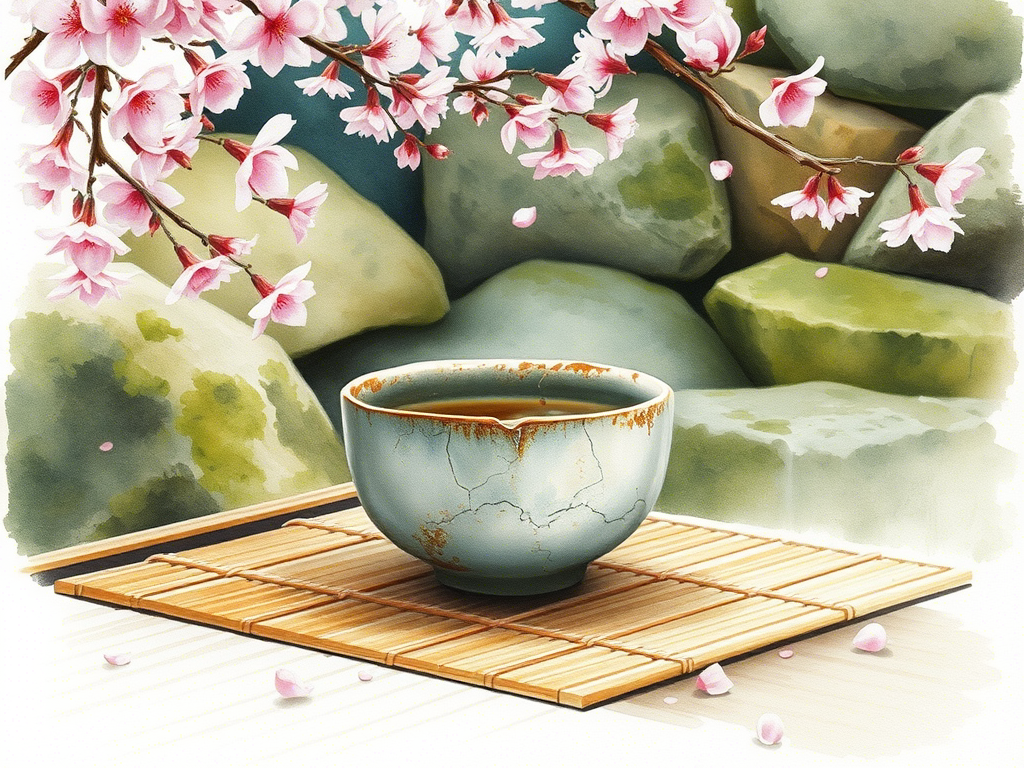20 Life-Changing Lessons from Ancient Cultures Around the Globe
Humanity’s past is a vast tapestry of wisdom, woven from the threads of countless cultures that thrived long before our modern age. From the philosophers of ancient Greece to the storytellers of Aboriginal Australia, these civilizations grappled with the same questions we face today: How do we live well? How do we find meaning? How do we connect with others and the world? Their answers, distilled through centuries of experience, remain startlingly relevant. In this article, we explore 20 life-changing lessons from ancient cultures around the globe, offering insights into their origins, their significance, and how you can apply them to transform your life today.
1. Stoicism (Ancient Greece): Control What You Can, Release What You Can’t
Historical Context: Born in Athens around the 3rd century BCE, Stoicism, founded by Zeno of Citium and later popularized by figures like Seneca, Epictetus, and Marcus Aurelius, is a philosophy of resilience. It teaches that happiness comes from focusing on what’s within your control—your thoughts, actions, and attitudes—while accepting what you cannot change, such as external events or others’ opinions.
The Lesson: Life is unpredictable, but your response to it is your power. By distinguishing between what you can influence and what you can’t, you free yourself from unnecessary stress. Marcus Aurelius wrote, “You have power over your mind—not outside events. Realize this, and you will find strength.”
Modern Application: When faced with a challenge—like a delayed flight or a critical colleague—pause and ask, “Can I control this?” If not, shift your focus to your reaction. Practice deep breathing or journaling to process emotions and choose a calm, deliberate response. Over time, this builds mental fortitude, reducing anxiety and fostering clarity.
Example: Imagine you’re stuck in traffic, late for a meeting. Instead of fuming, accept the delay and use the time to listen to a podcast or reflect on your day. This small shift can turn frustration into opportunity.
2. Ubuntu (Southern Africa): I Am Because We Are
Historical Context: Ubuntu, a Nguni Bantu term from Southern Africa, encapsulates a philosophy of interconnectedness. Popularized by leaders like Desmond Tutu, it emphasizes that our humanity is tied to others. This worldview shaped tight-knit communities where collective well-being trumped individual gain.
The Lesson: Your identity and strength are rooted in community. Ubuntu teaches that kindness, empathy, and cooperation aren’t just altruistic—they enrich your life by fostering belonging and mutual support.
Modern Application: Build stronger relationships by prioritizing empathy. Listen actively to a friend’s struggles without judgment, volunteer in your community, or simply share a meal with loved ones. Small acts of connection reinforce the idea that your well-being is linked to others’.
Example: Next time a coworker seems overwhelmed, offer to help with a task or just check in. This not only strengthens your bond but also creates a culture of support that benefits everyone.
3. Wabi-Sabi (Japan): Embrace Imperfection
Historical Context: Emerging from Zen Buddhism in medieval Japan, wabi-sabi is an aesthetic and philosophical concept that finds beauty in the imperfect, impermanent, and incomplete. It celebrates the cracks in pottery, the asymmetry of nature, and the fleeting nature of moments.
The Lesson: Perfection is an illusion that breeds dissatisfaction. Wabi-sabi invites you to embrace flaws—in yourself, others, and the world—as part of life’s beauty. It’s about finding joy in the transient and authentic.
Modern Application: Let go of unrealistic standards. Appreciate your quirks, like a crooked smile, or find charm in a weathered piece of furniture. When planning an event, don’t stress over every detail—focus on the experience. Practice gratitude for life’s imperfections to cultivate contentment.
Example: Instead of obsessing over a flawless Instagram post, share a candid moment. The authenticity will resonate more deeply with others and free you from the pressure to be perfect.
4. Dharma (Hinduism, India): Live Your Purpose
Historical Context: In Hinduism, dharma refers to the moral and cosmic order that governs life. It’s your duty to act in alignment with your purpose, values, and role in society, as outlined in texts like the Bhagavad Gita, where Krishna advises Arjuna to fulfill his duty as a warrior.
The Lesson: Living with purpose means aligning your actions with your values and responsibilities. Dharma encourages you to discover your unique path and act with integrity, even when it’s challenging.
Modern Application: Reflect on what drives you—perhaps creativity, helping others, or personal growth. Make choices that honor this, whether it’s pursuing a meaningful career or standing up for what’s right. Journaling about your values can clarify your dharma.
Example: If you value education, volunteer to tutor or share knowledge with colleagues. These actions align with your purpose and create a ripple effect of positivity.
5. Taoism (China): Flow with Life’s Natural Rhythm
Historical Context: Founded by Laozi in the 6th century BCE, Taoism emphasizes living in harmony with the Tao, the natural flow of the universe. The Tao Te Ching teaches that forcing outcomes creates resistance, while flexibility and simplicity lead to peace.
The Lesson: Stop fighting life’s currents. By adapting to circumstances and embracing simplicity, you find ease and balance. Taoism encourages patience and trust in life’s unfolding.
Modern Application: When plans go awry, pause and assess how you can adapt rather than resist. Simplify your life—declutter your space or schedule—to create room for spontaneity. Practice mindfulness to stay present with the moment.
Example: If a project stalls, instead of pushing harder, step back and explore alternative approaches. This flexibility can lead to unexpected solutions.
6. Karma (Buddhism, India): Your Actions Shape Your Future
Historical Context: In Buddhism, karma is the law of cause and effect—your actions, driven by intention, shape your future experiences. Originating in ancient India, this principle encourages mindfulness and ethical behavior.
The Lesson: Every choice you make plants a seed for the future. Kindness, honesty, and mindfulness create positive outcomes, while harmful actions perpetuate suffering.
Modern Application: Act with intention. Before speaking or deciding, consider the long-term impact. Perform small acts of kindness daily—like complimenting a stranger or helping a neighbor—to build a cycle of positivity.
Example: If you’re tempted to snap at someone in anger, pause and choose a kinder response. This not only defuses tension but also fosters better relationships over time.
7. Ma’at (Ancient Egypt): Seek Balance and Truth
Historical Context: In ancient Egyptian culture, Ma’at was the goddess and principle of truth, balance, and cosmic order. Living in accordance with Ma’at meant acting justly and maintaining harmony in personal and societal life.
The Lesson: Balance is the foundation of a meaningful life. Ma’at teaches you to prioritize truth, fairness, and equilibrium in your actions and relationships.
Modern Application: Strive for balance in your daily routine—work, rest, and play. Practice honesty, even in difficult conversations, and seek fairness in conflicts. Regular self-reflection can help you assess whether your life aligns with these principles.
Example: If you’re overworking, schedule time for rest or hobbies. This restores balance and honors Ma’at’s call for harmony.
8. Bushido (Japan): Live with Discipline and Honor
Historical Context: Bushido, the “Way of the Warrior,” was the ethical code of the samurai in feudal Japan. It emphasized virtues like loyalty, courage, and integrity, guiding warriors to live with purpose and honor.
The Lesson: A life of discipline and principle is a life of strength. Bushido encourages you to create a personal code and stick to it, even when it’s inconvenient.
Modern Application: Define your core values—perhaps reliability or compassion—and commit to them. Create routines that reflect these values, like keeping promises or practicing self-discipline in fitness or work.
Example: If you value honesty, admit a mistake at work instead of covering it up. This builds trust and aligns with Bushido’s emphasis on integrity.
9. Animism (Indigenous Cultures): Respect All Living Things
Historical Context: Animism, practiced by many indigenous cultures worldwide, holds that all things—plants, animals, rivers—possess a spirit. This worldview fosters deep respect for nature and interconnectedness.
The Lesson: Everything in the world is alive and worthy of respect. Animism teaches you to live in harmony with your environment, recognizing the sacred in the everyday.
Modern Application: Spend time in nature—hike, garden, or simply observe. Adopt sustainable habits, like reducing waste or supporting eco-friendly products. Treat animals and plants with care, acknowledging their role in the web of life.
Example: Plant a tree or start a compost bin. These actions honor animism’s call to nurture the earth.
10. Confucianism (China): Cultivate Virtue Through Relationships
Historical Context: Founded by Confucius in the 5th century BCE, Confucianism emphasizes ethical behavior, respect for elders, and the importance of relationships in shaping a harmonious society.
The Lesson: Your relationships are a training ground for virtue. By practicing respect, kindness, and duty, you create a ripple effect of harmony in your community.
Modern Application: Strengthen your relationships by showing gratitude—write a thank-you note or call a loved one. Practice active listening and prioritize family or community traditions.
Example: Spend a weekend reconnecting with family or mentoring a younger colleague. These acts embody Confucian values of care and respect.
11. The Golden Rule (Various Cultures): Treat Others as You Wish to Be Treated
Historical Context: Found in cultures from ancient Egypt to Christianity to Confucianism, the Golden Rule is a universal principle of empathy and fairness. It’s a simple yet profound guide for human interaction.
The Lesson: Empathy is the key to ethical living. By considering how you’d want to be treated, you foster mutual respect and understanding.
Modern Application: Before acting, pause and imagine yourself in the other person’s shoes. This can guide decisions in conflicts, customer service, or even casual interactions.
Example: If a friend forgets an obligation, respond with understanding rather than frustration, just as you’d hope for in return.
12. Dreamtime (Aboriginal Australia): Stories Shape Reality
Historical Context: Aboriginal Australian Dreamtime stories are a rich oral tradition that connect people to their land, ancestors, and identity. These narratives explain creation and guide moral behavior.
The Lesson: The stories you tell—about yourself, your family, or your culture—shape your reality. Craft narratives that inspire growth and connection.
Modern Application: Reflect on the stories you tell yourself. Are they empowering or limiting? Write a personal mission statement or share family stories to strengthen your sense of identity.
Example: Instead of dwelling on a past failure, reframe it as a lesson that fueled your growth. Share this story to inspire others.
13. Ahimsa (Jainism, India): Practice Non-Violence
Historical Context: Ahimsa, a core principle of Jainism from ancient India, advocates for non-violence in thought, word, and action toward all living beings. It influenced figures like Mahatma Gandhi.
The Lesson: Compassion extends beyond physical harm. Avoid negative thoughts, harsh words, and actions that cause suffering, including to yourself.
Modern Application: Practice self-compassion by silencing your inner critic. Choose kind words in arguments and adopt a vegetarian meal or reduce harm to animals through sustainable choices.
Example: When frustrated, take a deep breath and respond calmly instead of lashing out. This honors ahimsa’s call for peace.
14. The Medicine Wheel (Native American): Balance the Four Directions
Historical Context: The Medicine Wheel, used by many Native American tribes, is a spiritual and philosophical framework representing balance across physical, emotional, mental, and spiritual realms.
The Lesson: A fulfilling life requires harmony across all aspects of your being. Neglecting one—like emotional health—disrupts the whole.
Modern Application: Assess your life’s balance. Are you overworking at the expense of rest? Create a weekly schedule that includes exercise, reflection, learning, and spiritual practices like meditation.
Example: If you’re mentally drained, take a walk (physical) or journal (emotional) to restore equilibrium.
15. Ancestor Veneration (Various African Cultures): Honor Your Roots
Historical Context: Many African cultures, such as the Yoruba and Akan, honor ancestors through rituals and storytelling, viewing them as guides and protectors.
The Lesson: Your past—family, culture, and heritage—shapes who you are. Honoring your roots grounds you and provides wisdom for the present.
Modern Application: Research your family history or cultural traditions. Create a small ritual, like lighting a candle for ancestors, or share their stories with younger generations.
Example: Cook a traditional family recipe and share its story with loved ones, connecting past and present.
16. Hygge (Nordic Cultures): Find Joy in Simplicity
Historical Context: Hygge, a Nordic concept with roots in Scandinavian traditions, emphasizes coziness, comfort, and joy in simple moments. It reflects a cultural response to long, dark winters.
The Lesson: Happiness lies in life’s small, cozy moments—a warm drink, a good book, or time with friends. Prioritize these over material excess.
Modern Application: Create hygge moments by unplugging from devices, lighting candles, or hosting a low-key gathering. Focus on presence and warmth.
Example: Spend an evening with a blanket, tea, and a favorite book, savoring the simplicity of the moment.
17. Pono (Hawaiian Culture): Live Righteously
Historical Context: In Hawaiian culture, pono means living in alignment with what is right, just, and balanced. It’s a guiding principle for personal and communal harmony.
The Lesson: Righteousness isn’t about perfection but about making choices that feel true to your moral compass, benefiting both you and others.
Modern Application: Evaluate your decisions—do they align with your values? Keep promises, act fairly, and resolve conflicts with integrity.
Example: If you’ve wronged someone, apologize sincerely and make amends, embodying pono’s call for righteousness.
18. The Way of the Gods (Shinto, Japan): Reverence for the Present
Historical Context: Shinto, Japan’s indigenous religion, emphasizes purity, presence, and reverence for kami (spirits) in nature and everyday life.
The Lesson: The present moment is sacred. By fully engaging with now, you cultivate gratitude and clarity.
Modern Application: Practice mindfulness—focus on your senses during routine tasks like eating or walking. Perform small rituals, like tidying your space, to honor the present.
Example: When eating, savor each bite without distractions, connecting with Shinto’s reverence for the moment.
19. The Code of Hammurabi (Mesopotamia): Justice and Responsibility
Historical Context: One of the earliest legal codes, created in Babylon around 1754 BCE, the Code of Hammurabi outlined principles of justice and accountability to maintain social order.
The Lesson: Fairness and responsibility are the bedrock of a just life. Take accountability for your actions and treat others equitably.
Modern Application: Own your mistakes and make amends. Advocate for fairness in your workplace or community, ensuring everyone’s voice is heard.
Example: If you miss a deadline, acknowledge it and propose a solution, reflecting Hammurabi’s emphasis on responsibility.
20. The Oracle of Delphi (Ancient Greece): Know Thyself
Historical Context: The Oracle of Delphi, a priestess in ancient Greece, offered guidance, often with the maxim “Know Thyself.” This call for self-awareness was central to Greek philosophy.
The Lesson: Understanding your strengths, weaknesses, and desires is the foundation of growth. Self-knowledge empowers better decisions and relationships.
Modern Application: Dedicate time to self-reflection through journaling, meditation, or therapy. Ask: What motivates me? What holds me back?
Example: Write down three things you’re proud of and three areas for growth. Use this insight to set personal goals.
Conclusion: Weaving Ancient Wisdom into Modern Life
These 20 lessons, drawn from the wellspring of ancient cultures, remind us that humanity’s core challenges and aspirations are timeless. From Stoicism’s focus on inner control to Ubuntu’s celebration of community, these principles offer a roadmap for living with purpose, balance, and connection. Start small—choose one lesson that resonates and integrate it into your daily routine. Over time, these ancient insights can transform your perspective, relationships, and life.
Which lesson speaks to you most? How will you apply it today? Share your thoughts below, and let’s keep the wisdom of the past alive in the present.





